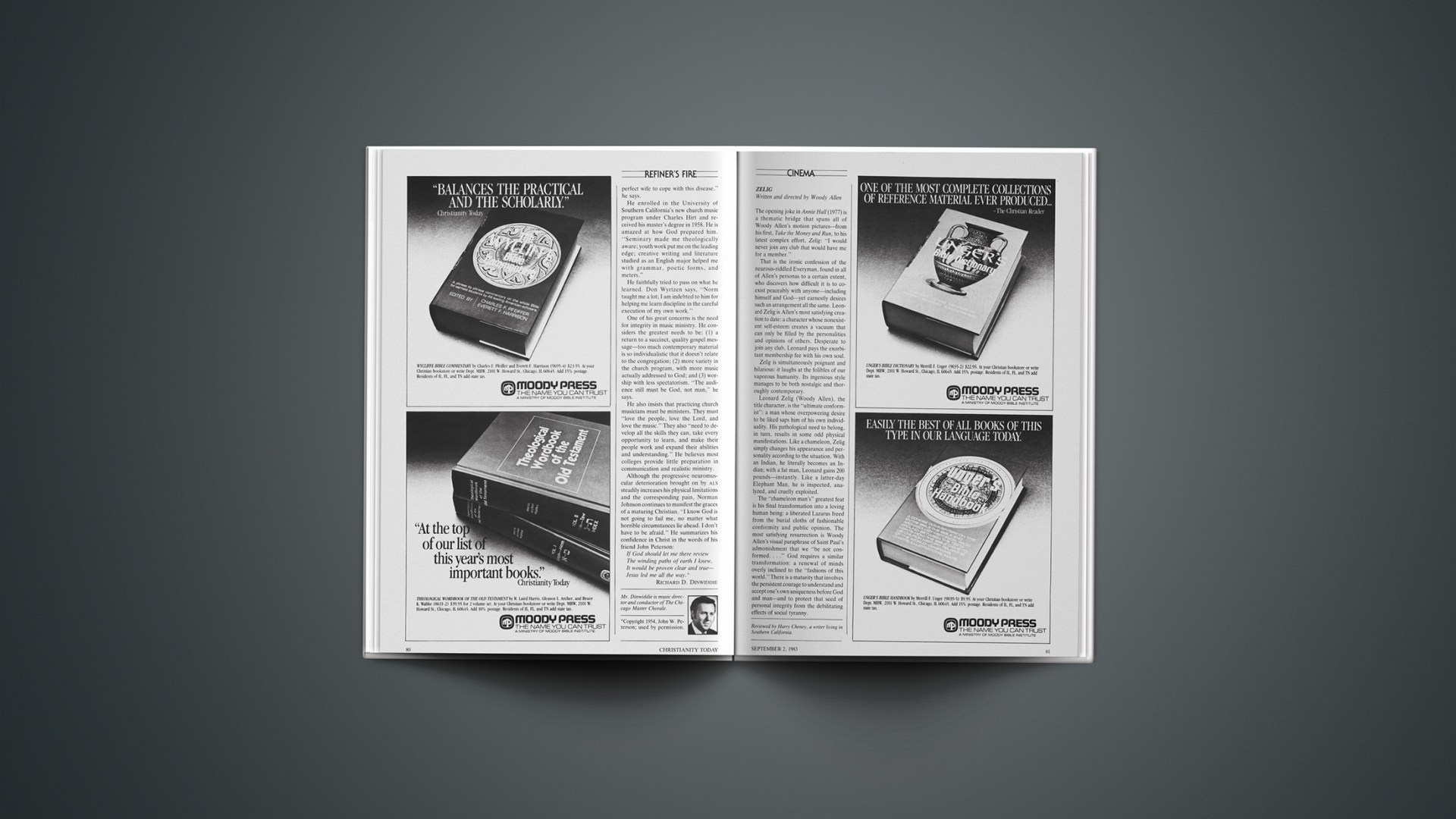Zelig
Written and directed by Woody Allen1Reviewed by Harry Cheney, a writer living in Southern California.
The opening joke in Annie Hall (1977) is a thematic bridge that spans all of Woody Allen’s motion pictures—from his first, Take the Money and Run, to his latest complex effort, Zelig: “I would never join any club that would have me for a member.”
That is the ironic confession of the neurosis-riddled Everyman, found in all of Allen’s personas to a certain extent, who discovers how difficult it is to coexist peaceably with anyone—including himself and God—yet earnestly desires such an arrangement all the same. Leonard Zelig is Allen’s most satisfying creation to date: a character whose nonexistent self-esteem creates a vacuum that can only be filled by the personalities and opinions of others. Desperate to join any club, Leonard pays the exorbitant membership fee with his own soul.
Zelig is simultaneously poignant and hilarious: it laughs at the folibles of our vaporous humanity. Its ingenious style manages to be both nostalgic and thoroughly contemporary.
Leonard Zelig (Woody Allen), the title character, is the “ultimate conformist”: a man whose overpowering desire to be liked saps him of his own individuality. His pathological need to belong, in turn, results in some odd physical manifestations. Like a chameleon, Zelig simply changes his appearance and personality according to the situation. With an Indian, he literally becomes an Indian; with a fat man, Leonard gains 200 pounds—instantly. Like a latter-day Elephant Man, he is inspected, analyzed, and cruelly exploited.
The “chameleon man’s” greatest feat is his final transformation into a loving human being: a liberated Lazarus freed from the burial cloths of fashionable conformity and public opinion. The most satisfying resurrection is Woody Allen’s visual paraphrase of Saint Paul’s admonishment that we “be not conformed.…” God requires a similar transformation: a renewal of minds overly inclined to the “fashions of this world.” There is a maturity that involves the persistent courage to understand and accept one’s own uniqueness before God and man—and to protect that seed of personal integrity from the debilitating effects of social tyranny.
Reviewed by Harry Cheney, a writer living in Southern California.










